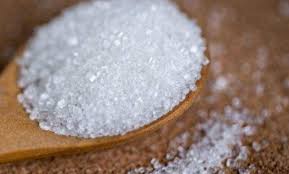
IFIC’s 2020 Food and Health Survey found that in the past year nearly one in every four people say they’re consuming more plant-based dairy alternatives. Almond, coconut, oat, rice or soy—you name it, someone’s turned it into something that resembles cow’s milk. Specifically, oat-based milk has made a name for itself with its allergen-free profile and unassuming taste. But what is oat-based milk, and should you consider drinking it?
The basics
Although oat-based milk is described as “milk,” it does not contain dairy, nuts or soy and is a vegan-friendly alternative to traditional cow’s milk. Oat-based milk is made using steel-cut oats that are soaked in water, blended and then strained through a cheesecloth. While the leftover pulp contains most of the fiber and protein that oats offer, the left-over liquid or “milk” also contains some of those nutrients.
While oat-based milk is appealing to those who cannot tolerate or are allergic to dairy, nuts or soy, it’s also an option for those who have celiac disease or difficulty digesting gluten (although cow’s milk and other plant-based dairy alternatives are also valid options in this case). Oats are naturally gluten-free, but they can sometimes be processed in a facility that processes gluten-containing products. If you require a gluten-free diet, it’s important to choose oat-based milk that is certified gluten-free to ensure that there hasn’t been any cross-contamination.
Oat-based milk and health
Whole oats have been well-researched and are known for their heart-healthy benefits, and oat-based milk can offer similar benefits. Oat-based milk contains beta-glucan, which is a soluble fiber that can help reduce LDL cholesterol and may reduce the risk of heart disease. Fortified oat-based milk also contains essential nutrients like vitamin D and calcium, which are important for bone health.
Compared with cow’s milk and soy milk, oat-based milk has less protein per serving, but oat-based milk boasts more protein than other plant-based dairy alternatives made from almonds, coconut and rice. Oat-based milk also contains more calories, fiber and carbohydrates than skim and low-fat cow’s milk and soy- and almond-based beverages. Just like flavored cow’s milk, certain flavors of oat-based milk may contain added sugars, so be sure to check out the Nutrition Facts label for more information if you’re trying to limit your intake of added sugars.
Other considerations
Oat-based milk can be used in ways similar to cow’s milk. Its slightly sweet taste and somewhat thick consistency are often used to bolster smoothies, baked goods and lattes.
It’s worth noting that oat-based milk is often more expensive than cow’s milk and several plant-based dairy alternatives, so if price is an important factor for you, another alternative may be better—or you could try making it at home.
When it comes to infants and toddlers, oat-based milk is considered generally safe for babies who are at least one year old. However, in contrast to cow’s and soy-based milk, oat-based milk does not provide sufficient amounts of all amino acids (the building blocks of protein) for children of this age. Therefore, it is not recommended for exclusive consumption in place of cow’s milk for infants and young children. In the case of a suspected cow’s milk allergy, plant-based dairy alternatives are an option for children over 1 years old.
In the case of a suspected cow’s milk allergy, the American Academy of Pediatrics (AAP) does not have a conclusive statement on plant-based dairy alternatives. If you are interested in alternatives to cow’s milk or suspect your infant or toddler is allergic to cow’s milk, it’s important to work with your healthcare provider.
As a reminder, the AAP recommends “exclusive breastfeeding for about 6 months, followed by continued breastfeeding as complementary foods are introduced, with continuation of breastfeeding for 1 year or longer as mutually desired by mother and infant.” After one year, it is recommended to introduce cow’s milk.
The bottom line
Oat-based milk is a plant-based dairy alternative that’s vegan-friendly and naturally dairy-, lactose-, soy- and nut-free. It is important to point out that oat-based milk’s nutrition profile is different from that of cow’s milk. Oat-based milk contains fat, protein, fiber and carbohydrates (including added sugars in some varieties) and is often fortified with many vitamins and minerals such as calcium and vitamins A, B12 and D. It is a versatile alternative that can be used in a variety of ways, although it is often more expensive than cow’s milk and other plant-based dairy alternatives. Oat-based milk can be a nutritious addition to your diet if it aligns with your taste preferences, budget and eating patterns.
Disclaimer: The U.S. Food and Drug Administration is currently developing draft guidance to provide greater clarity on the appropriate labeling of plant-based alternatives to cow’s milk, specifically whether or not certain non-dairy beverage products may be referred to as “milk.”



